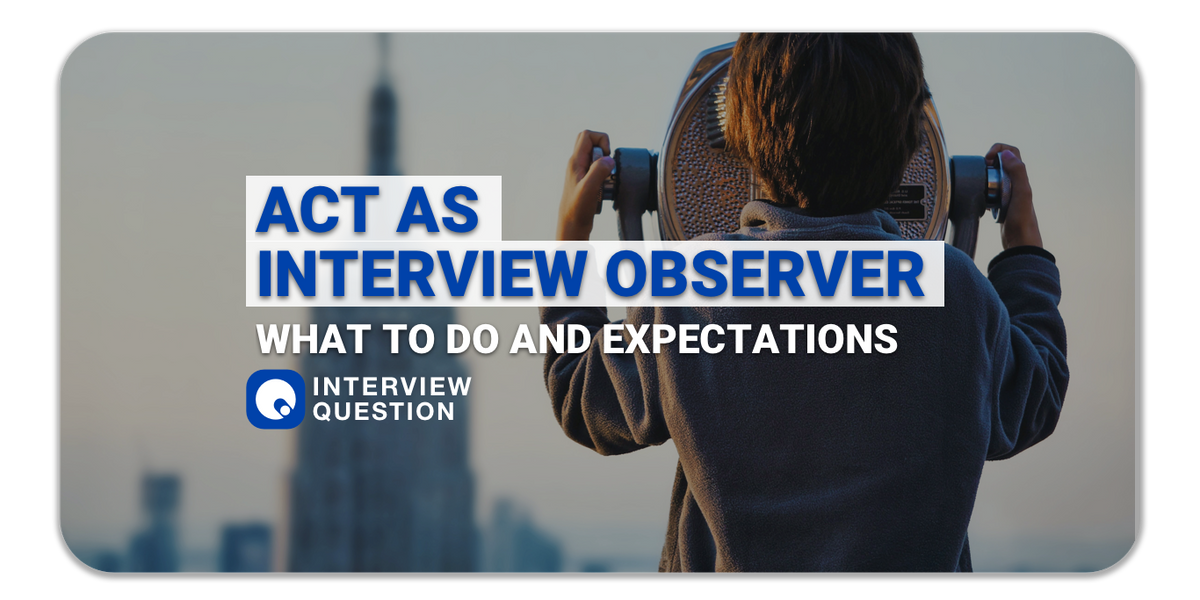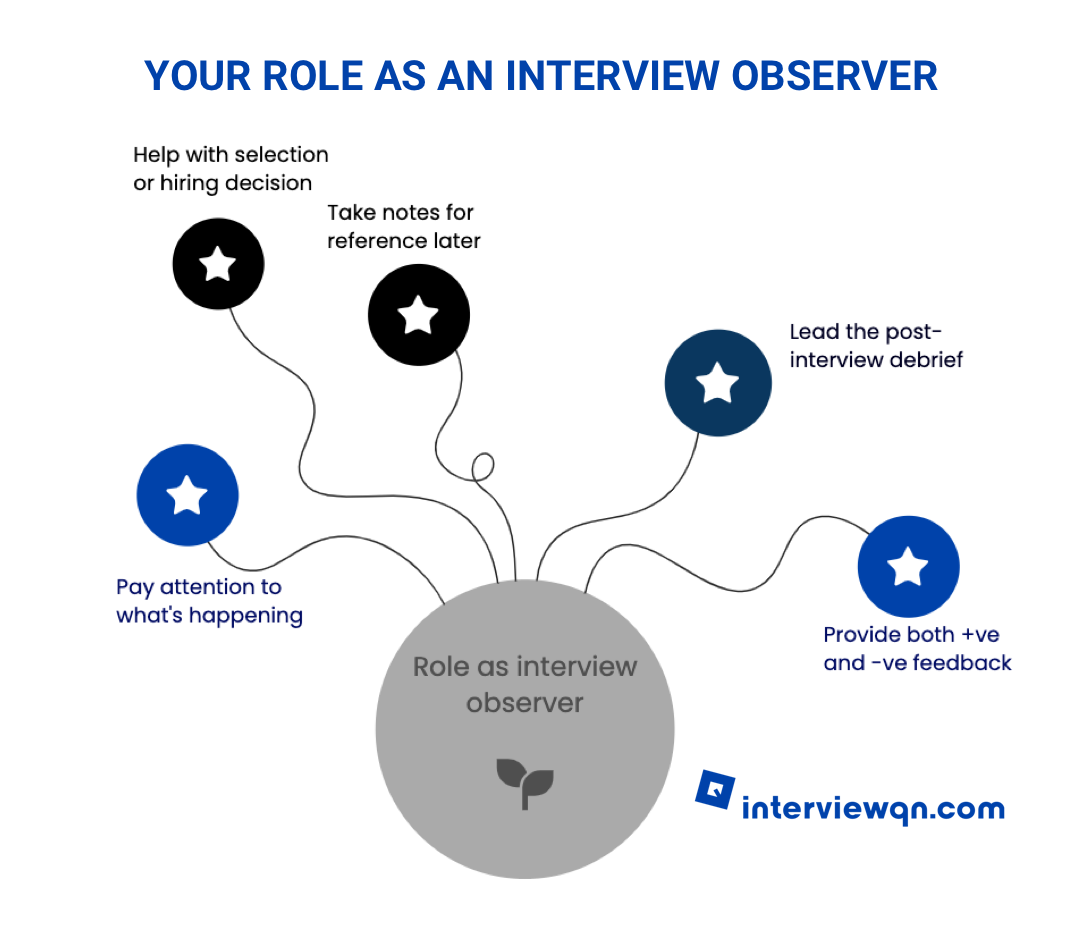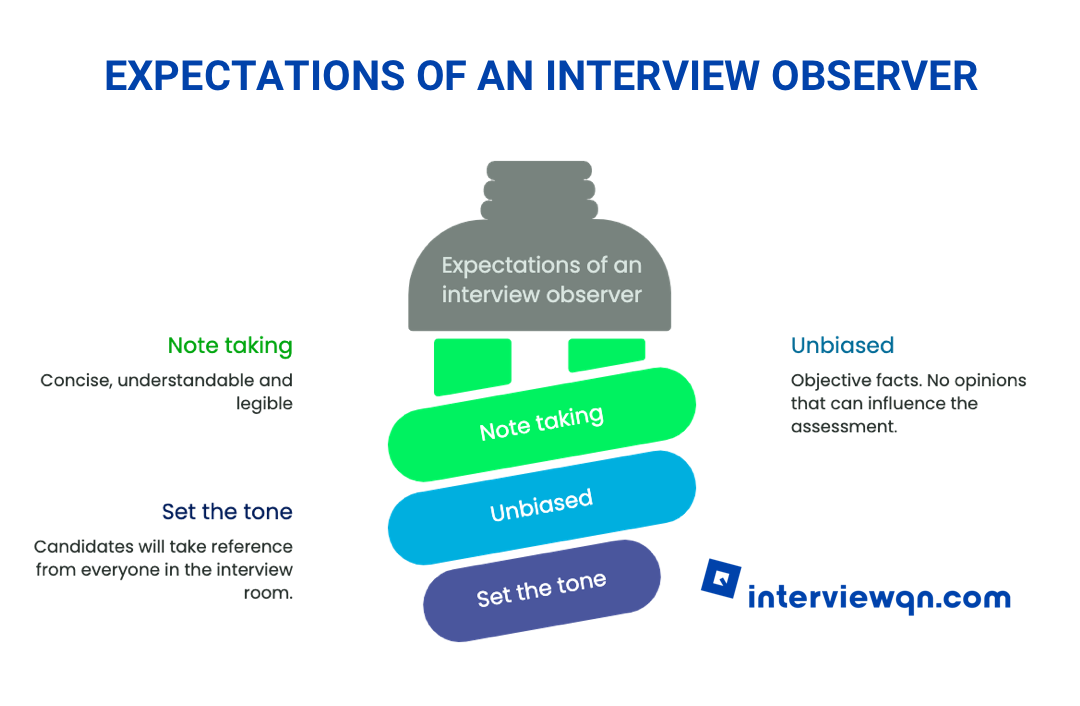Act as Interview Observer: What to Do and Expectations
If you have been assigned to be an interview observer, this article will tell you what your role would be and what to expect from the process.

If you've been asked to be an interview observer, you may be wondering what exactly is expected of you.
This article will outline what you need to do as an interview observer, as well as what expectations you should have.
Your role: To give feedback on the candidate without being biased or influenced
As an interview observer, your role is to provide impartial feedback on the performance of the candidate.
- You should pay close attention to both the verbal and nonverbal communication of the candidate, as well as their overall demeanour.
- It's important that you take note of any red flags that may come up during the course of the interview.
- After the interview is over, you'll need to debrief with the interviewer and go over your observations. The points you noted down will be crucial to move the debrief in the right direction.
- Be prepared to give honest feedback, both positive and negative.
- Your goal is to help the interviewer make an informed decision about whether or not this candidate is a good fit for the position.

Expectations from your manager when you are asked to be an interview observer
Your manager may give you some direction on what they are looking for, but here are a few expectations you can have when asked to be an interview observer.

Note-taking abilities
As an observer, you should take notes and provide feedback to the interviewer after the candidate has left. This feedback should be objective and concise. Opt to have some structure and put clear headings so that the information can be quickly referenced.
Should your notes be documented and filed up, the next person who reads the document must be able to decipher what you've written. So, you need to write legibly and have decent handwriting. Otherwise, you can transcribe it later and make it into a digital copy.
Remove bias in your observation
You are expected to be objective when you act as an observer during interviews. Your manager will rely on you to provide accurate feedback about the candidates so that they can make informed hiring decisions. Be factual. Leave aside opinions. Therefore, it is important that you take your role seriously and prepare for the interview by familiarizing yourself with the job description and company culture.
Set the standards of professionalism and interview tone.
In addition, you should dress professionally and arrive early to the interview so that you can set the tone for the candidate. You (and the interviewer) will be the benchmark that the candidate takes reference from. It is also important to remain professional at all times during the interview process, even if the candidate is not.
How observers make a difference in an interview
As an observer, you can help the interview process in several ways.
First, by providing feedback to the interviewer afterwards about their performance and what they could improve on.
Second, by taking notes during the interview itself so that the interviewer can focus on asking questions and getting to know the candidate better.
Third, by helping to keep the candidate calm and relaxed during the interview so that they can do their best.
And finally, by offering your own insights and observations about the candidate after meeting them which can help inform the interviewer's decision making process.
